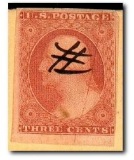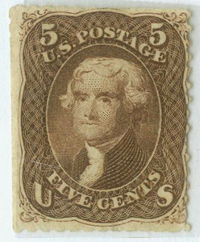
Discussion - Member to Member Sales - Research Center

Discussion - Member to Member Sales - Research Center

Goal: to improve collection (Mom was using it for postage) so I can give it to my son.
I'm not sure where to start. Some stamps appear to be Grandpa's original set (in pages). Some large plates (I think that's what they are called) and I also have covers dating from the 40's-50's. There's probably more.
Insurance coverage? Yes? No? How to determine value?
Sorry for the stupid questions. It has been a long time since I was sitting in the attic office, helping Grandpa or running mimeograph for stamp auctions. I'm hoping this will turn out to be a good thing.

Login to Like
this post
You will certainly need catalogue numbers, but using a spread sheet, of course, there's no problem adding them. If you don't already have a fairly recent Scott catalogue, you should get one. Libraries sometimes have them, but it's much better to have one at home. They are expensive, however.
Planning to give your collection to your son isn't exactly a red flag, but the numbers of youth collectors, in North America at least, is verging on zero. Philately just isn't something the great majority of young people have the slightest interest in. The best incentive for collecting is to make collecting your thing, for the time you can enjoy it.
"Large plates"? Not sure what you're talking about. Sheets of stamps? Plate blocks (multiples with margins printed with printing plate numbers)?
Insurance? Only if the collection is valuable enough to cause you to have a heart attack if it were stolen or lost in a fire. And by "valuable" I don't mean just cash value, but its importance to you personally. Value is difficult to impossible for a beginner to establish. Once you begin to understand how to use catalogues and identify individual stamps with some precision, then you might consider evaluating the collection, bearing in mind that many modern stamps are worth little more than their value as postage, if that. Stamp collecting is not about the value of stamps as investments, but as conduits to knowledge. Think of stamps as artifacts that reveal a great deal about the life and times in which they were created.
Stupid questions? I'm not sure they exist.
Good luck. Feel free to ask for help at any time.
Bob

1 Member
likes this post.
Login to Like.
Thanks Bob for the info and the tip in the Scott's catalog. I'll check the library to start.
Checked with "the kid", he's interested in aviation stamps. Go figure, Army Medic on his way to flight school in a few months.
Next question: storage/keeping? I have 4 different stamp types.
Grandpa had his stamps (mostly 4 stamps) in cellophane-like envelopes, categorized in wood boxes. Shelves and shelves of them. Much small set is left.
The big sheets of stamps (plate blocks?) are in large manila envelopes.
The oldest stamps are on printed pages with envelopes.
The cancelled envelopes are loose.
What are the best methods for storing all these different types? Should I leave the stamps in the pages?
Supplies are so confusing, so everything is in a fire-proof safe.
Thanks for your help

Login to Like
this post

Ok, it looks like I took the "accountant" road and listed all the stamps in a spreadsheet. Sorry. I didn't add Scott's numbers, that could be good or bad. Should I do that?
Goal: to improve collection (Mom was using it for postage) so I can give it to my son.
I'm not sure where to start. Some stamps appear to be Grandpa's original set (in pages). Some large plates (I think that's what they are called) and I also have covers dating from the 40's-50's. There's probably more.
Insurance coverage? Yes? No? How to determine value?
Sorry for the stupid questions. It has been a long time since I was sitting in the attic office, helping Grandpa or running mimeograph for stamp auctions. I'm hoping this will turn out to be a good thing.

Login to Like
this post

re: Where to start, newbie
You will certainly need catalogue numbers, but using a spread sheet, of course, there's no problem adding them. If you don't already have a fairly recent Scott catalogue, you should get one. Libraries sometimes have them, but it's much better to have one at home. They are expensive, however.
Planning to give your collection to your son isn't exactly a red flag, but the numbers of youth collectors, in North America at least, is verging on zero. Philately just isn't something the great majority of young people have the slightest interest in. The best incentive for collecting is to make collecting your thing, for the time you can enjoy it.
"Large plates"? Not sure what you're talking about. Sheets of stamps? Plate blocks (multiples with margins printed with printing plate numbers)?
Insurance? Only if the collection is valuable enough to cause you to have a heart attack if it were stolen or lost in a fire. And by "valuable" I don't mean just cash value, but its importance to you personally. Value is difficult to impossible for a beginner to establish. Once you begin to understand how to use catalogues and identify individual stamps with some precision, then you might consider evaluating the collection, bearing in mind that many modern stamps are worth little more than their value as postage, if that. Stamp collecting is not about the value of stamps as investments, but as conduits to knowledge. Think of stamps as artifacts that reveal a great deal about the life and times in which they were created.
Stupid questions? I'm not sure they exist.
Good luck. Feel free to ask for help at any time.
Bob

1 Member
likes this post.
Login to Like.

re: Where to start, newbie
Thanks Bob for the info and the tip in the Scott's catalog. I'll check the library to start.
Checked with "the kid", he's interested in aviation stamps. Go figure, Army Medic on his way to flight school in a few months.
Next question: storage/keeping? I have 4 different stamp types.
Grandpa had his stamps (mostly 4 stamps) in cellophane-like envelopes, categorized in wood boxes. Shelves and shelves of them. Much small set is left.
The big sheets of stamps (plate blocks?) are in large manila envelopes.
The oldest stamps are on printed pages with envelopes.
The cancelled envelopes are loose.
What are the best methods for storing all these different types? Should I leave the stamps in the pages?
Supplies are so confusing, so everything is in a fire-proof safe.
Thanks for your help

Login to Like
this post

